- The Research Office
- news
- About the Research Office
- Calendar, Training and Events
- Faculty/Staff Resources
- Research Facilities and Resources
- Research Centers
- Student Research/Funding Opportunities
- Professional Development, Collaboration Resources and Community Engagement
- Regulatory Compliance
- Technology, Commercialization and Economic Development
- Frequently Needed Information
- Give to the Research Office
- GDPR Privacy Notice
- Contact Us
- Highlights
Biological science and physics students to present research at prestigious science and engineering conference
Ten Oakland University undergraduates and graduates are presenting their research at the Sigma Xi Annual Meeting & International Research Conference.
“Sigma Xi is one of the largest international scientific research societies that have a long history of serving science and engineering,” said Dr. Shailesh Lal, president of the Oakland Sigma Xi chapter. “For many students, attending this meeting provides them with the first opportunity to present their work, and generates a great deal of enthusiasm towards their career in science.”
The 2014 Sigma Xi meeting features leadership training, talks by award winning scientists, debates on critical science policy issues and discussions on the future of Sigma Xi. The conference welcomes outstanding high school, undergraduate and graduate students to gather with researchers from North America and abroad.
Sigma Xi is a global honor society for science and engineering research. Oakland’s chapter promotes science and engineering awareness to the university community, as well as organizes fundraisers to help send students and faculty to the annual Sigma Xi research conference. The chapter is also supported by generous donations from the Office of the President, Office of the Provost, College of Arts and Sciences, School of Engineering and Computer Sciences, Eye Research Institute, Center for Biomedical Research, Department of Biological Sciences.
The 10 OU students majoring in biology and physics will be traveling to Glendale, Ariz., in early November and will be accompanied by the Department of Biological Sciences faculty Dr. Fabia Battistuzzi and Dr. Sarah Hosch.
Student research presentations will include:
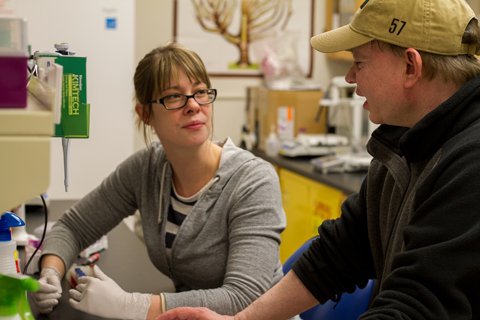
Amy Siebert-McKenzie, Department of Biological Sciences
Amy Siebert-McKenzie is a doctoral student working with Dr. Randy Westrick on understanding the hypercoagulable states and facilitating the discovery of novel therapeutic targets or strategies.
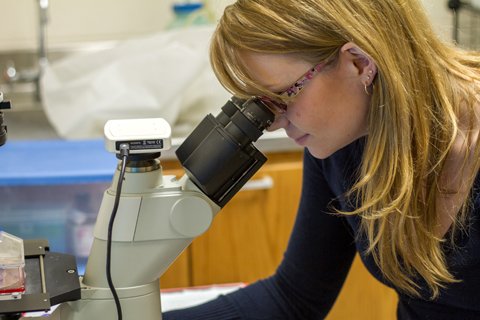
Eryn Slankster, Department of Biological Sciences
Erin Slanskter is performing her doctoral research with Dr. Gerard Madlambayan. Her research focuses on the development of novel cell therapies for the treatments of critical limb ischemia.
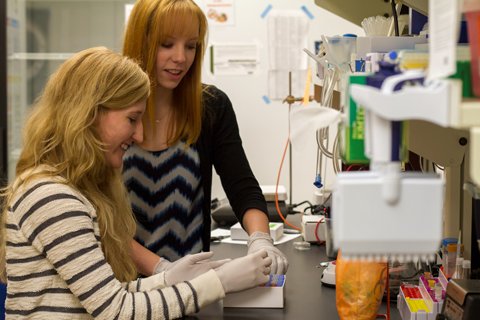
Stephanie Verbeek, Department of Biological Sciences
Graduate student Stephanie Verbeek is working with Dr. Randy Westrick on generating data that will define a gene responsible for platelet/megakaryocyte gene expression and could potentially lead to a novel therapeutic target for modulating thrombotic disease.
Marisa Brake, Department of Biological Sciences
Undergraduate researcher Marisa Brake is working with Dr. Randal Westrick to identify thrombosis modifier genes. Identification of these genes will provide insight into the genetic regulation of thrombosis and facilitate the discovery of novel therapeutic interventions.
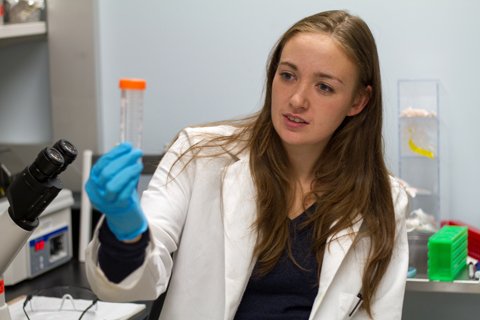
Erin Feeney, Department of Biological Sciences
Erin Feeney is an undergraduate student studying the impact of norrin on the structural integrity of the ischemic retina under the mentorship of Dr. Kenneth Mitton and Dr. Kimberly Drenser in the Eye Research Institute.
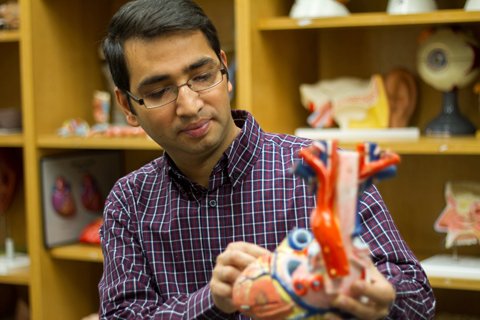
Sunil Kandel, Department of Physics
Sunil Kandel is a graduate student in Dr. Bradley Roth’s laboratory studying electrical properties of the heart, in which he is using mathematical modeling to simulate electrical stimulation of cardiac tissue.
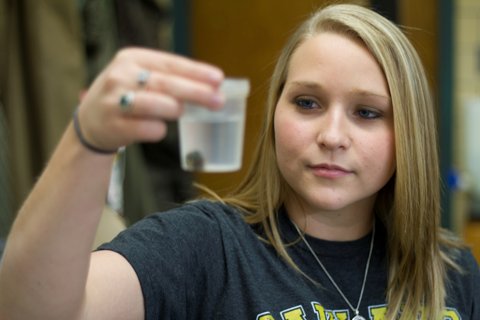
Elizabeth Scott, Department of Biological Sciences
Working in Dr. Thomas Raffel’s laboratory, Elizabeth Scott is an undergraduate student studying the impact of fluctuating-temperature on parasite production in snails with the potential application for predicting disease risk from snail-borne parasites.
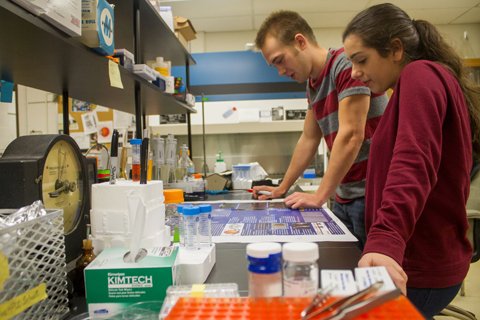
Nahrain Putris, Department of Biological Sciences
Nahrain Putris is a sophomore in the Honors College, majoring in Biochemistry (pre-med). She is under the mentorship of Dr. Frank Giblin and Dr. Shravan Chintala in the Eye Research Institute, and generates data that will provide further insight on how the lens is able to protect itself against sunlight-induced cataract formation.
Mason Geno, Department of Biological Sciences
Mason Geno is a junior in the Honors College, majoring in Biomedical Sciences. His mentors are Dr. Frank Giblin and Dr. Shravan Chintala in the Eye Research Institute, and his research will provide a better understanding of how PARP-1 is able to protect the human lens epithelium against increased levels of oxidative stress.
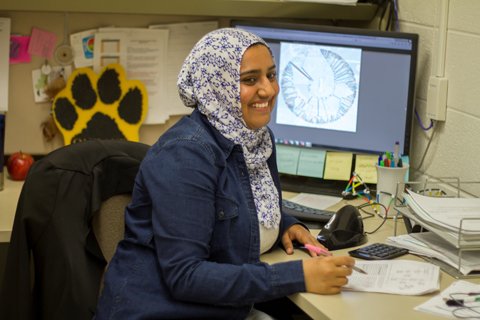
Sophia Chaudhry, Department of Biological Sciences
Conducting research as a graduate student in Dr. Fabia U. Battistuzzi’s laboratory, Sophia Chaudhry analyzes the evolutionary history of low complexity regions in Plasmodia.
